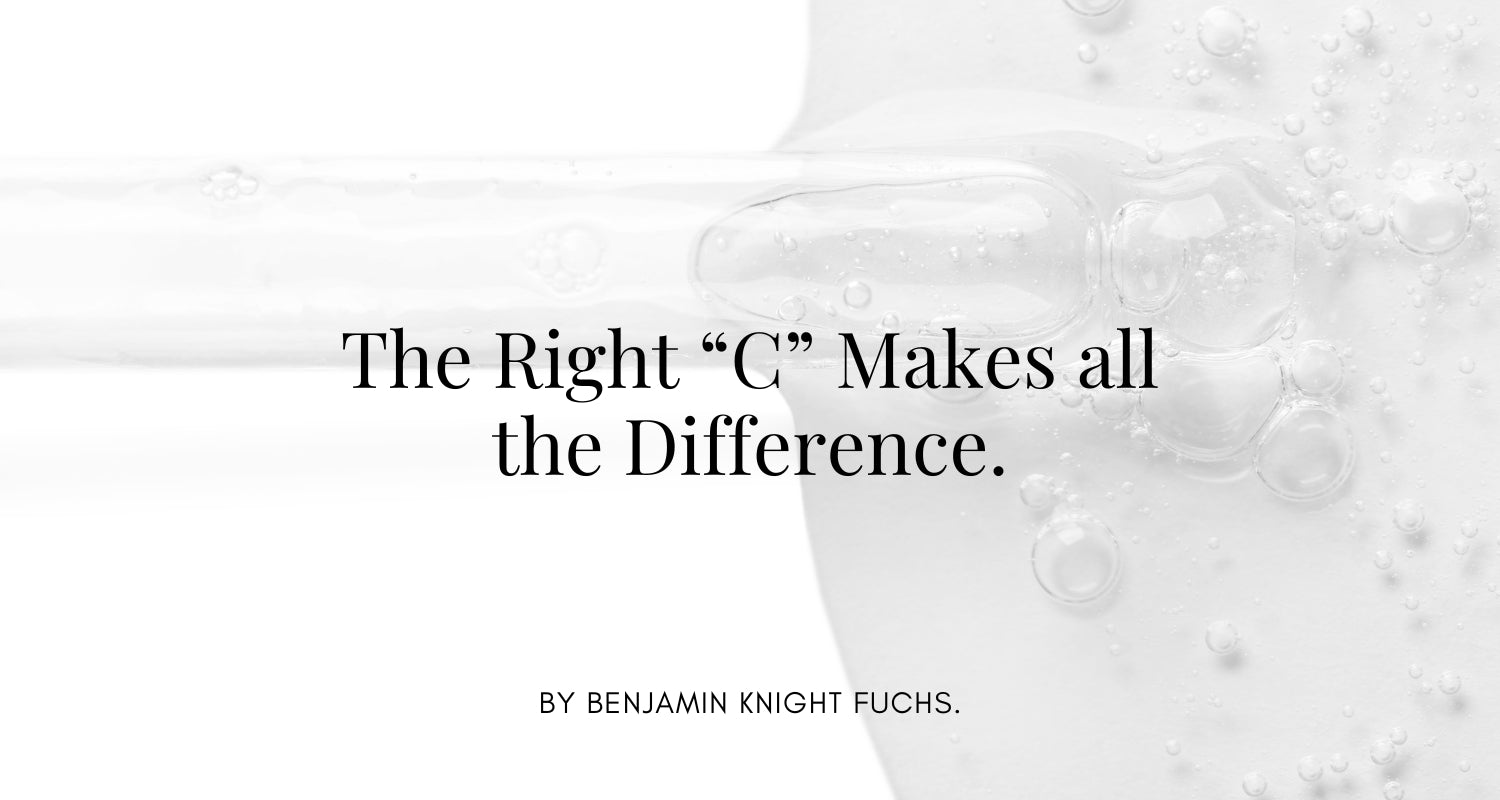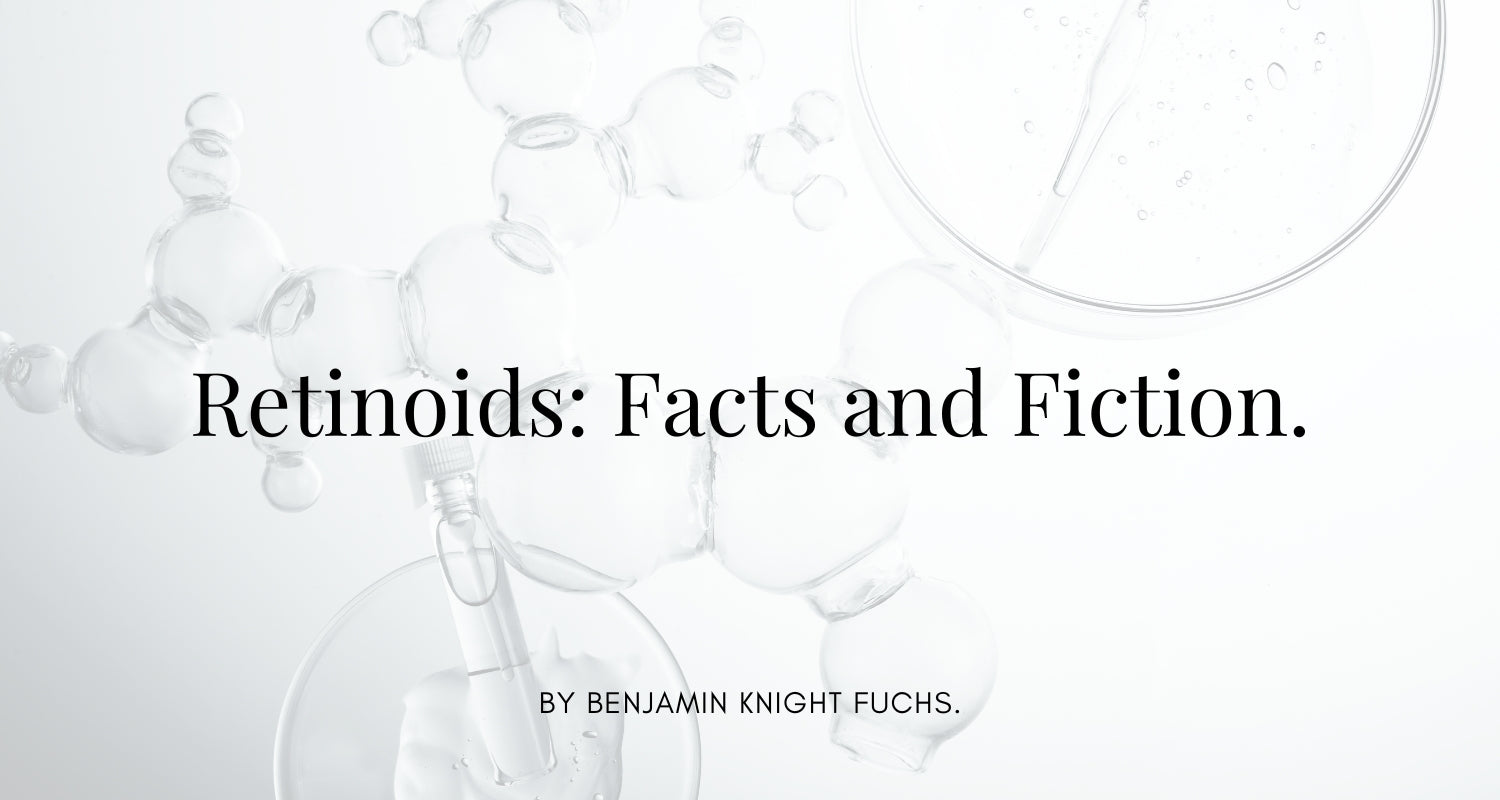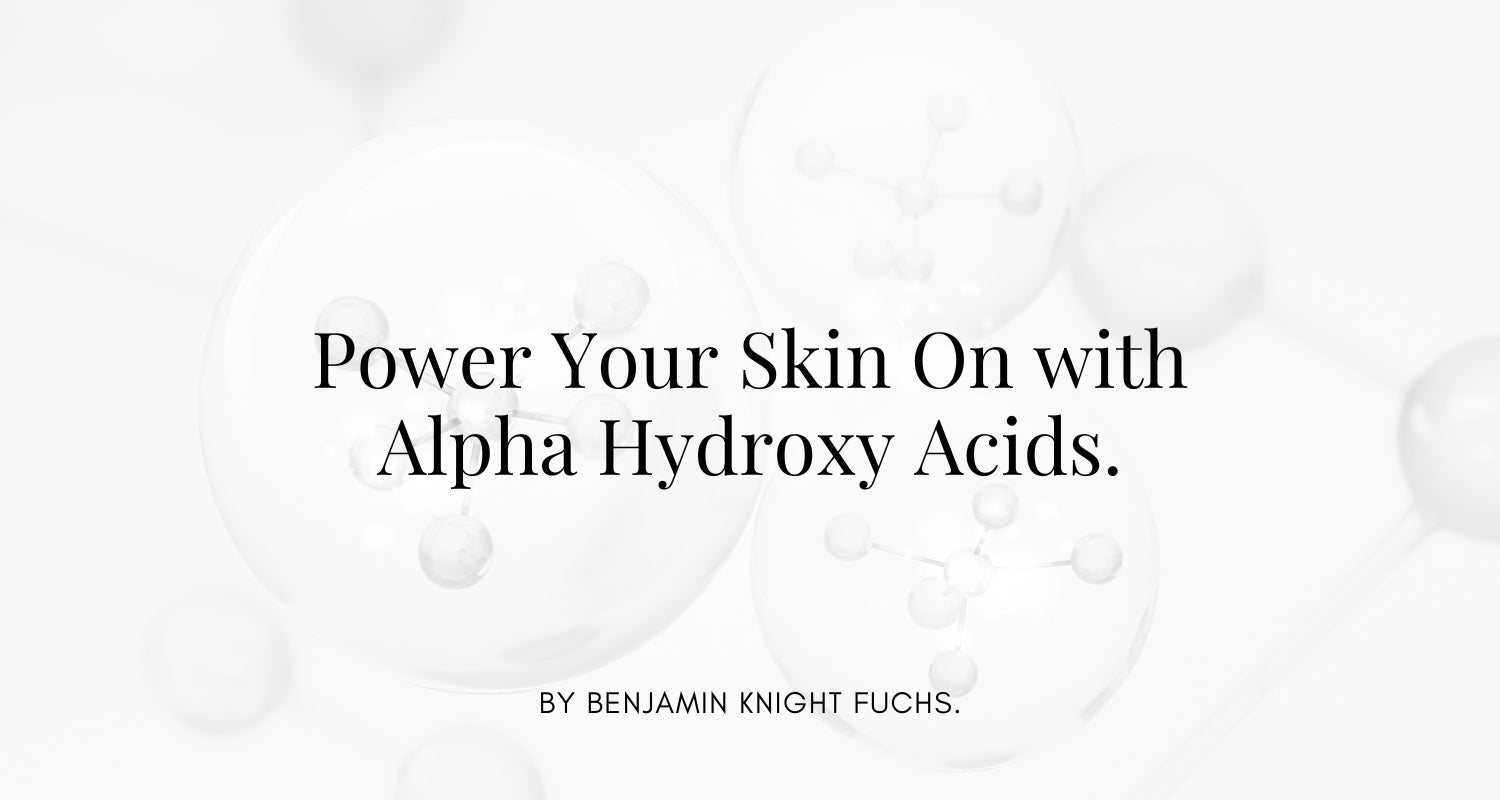
The Right “C” Makes all the Difference
While there are many different Vitamin C molecules used in skincare, they are not all equally effective. Here’s the lowdown on the various kinds of skincare “C “and their pros and cons.
L-Ascorbic Acid (AA): Because it is inexpensive, this “C” molecule is the most popular one. But since it is water soluble it is highly unstable and can easily lose its effectiveness in the presence of light, air and oxygen. It also won’t treat the fat-soluble parts of skin cells. In addition, due to its instability, you need high concentrations of L-Ascorbic Acid to work and it needs to be mixed into an alkaline (low pH) formulation for maximum effectiveness. Bottom line, L-Ascorbic Acid-based skin preparactions can be extremely irritating.
Like L-Ascorbic Acid, Magnesium Ascorbyl Phosphate (MAP) and Sodium Ascorbyl Phosphate (SAP) are both water soluble so they need to be used in high concentrations and mixed into alkaline formulations to be effective, which increases the likelihood of skin reactivity. They also are unstable and likely to break down from exposure to the elements.
Ascorbyl Palmitate (AP) is a Vitamin C ester, which means that its water has been eliminated and it has been combined with alcohol to create a fatty acid, making it fat-soluble rather than water-soluble. It is also non-irritating, long-lasting and highly effective. The problem is that it is so stable it doesn’t blend well with other ingredients, which means it only can be used in minuscule amounts as a product-preservative.
Ascorbyl Tetraisopalmitate (ATIP): More stable and less irritating than AA, this fat-soluble molecule has all the benefits of AP but none of the drawbacks since its molecular structure blends completely into skincare products and mixes harmoniously with other ingredients. Research has also shown it to be the most effective C molecule in suppressing UV-induced pigmentation spots, improving skin hydration, spurring collagen synthesis and that it even may prevent UV damage from occurring. However, ATIP is extraordinarily expensive, costing around $800 a kilogram versus the $5-$10 a kilogram for L-Ascorbic Acid, so you won’t find it in many skin care products. But it is the primary ingredient in each of our Truth Treatment Vitamin C products.
Thanks,
Ben


